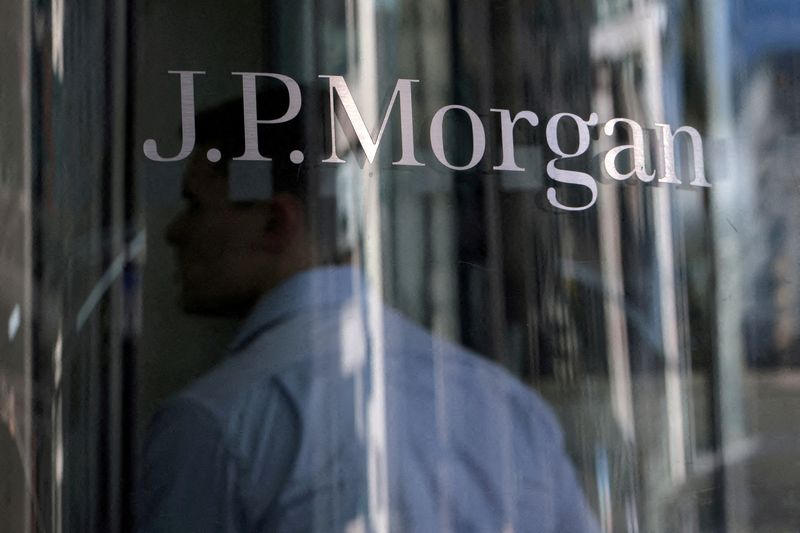Investing.com – It is time for investors to “sell [their] JPMorgan Chase (NYSE:)” shares, analysts at Baird have argued in a note downgrading their rating of the investment banking giant.
In October, the largest US lender by assets posted managed net interest income (NII), or the difference between what it pays for deposits and earns from loans, of $23.53 billion during the period, compared with Bloomberg consensus estimates of $22.8 billion.
Net income, meanwhile, grew to $12.9 billion, topping expectations thanks to higher revenues and improved cost discipline, although the number dropped by 2% from a year ago.
JPMorgan said it expects NII to decline slightly to $22.9 billion in the current quarter, bringing its annual total to about $92.5 billion. NII came in at $89.7 billion in its 2023 fiscal year.
The bank set aside $3.1 billion in provisions for possible loan losses, more than doubling the provisions it had reserved in the same quarter last year.
Chief Executive Jamie Dimon said in a statement that while inflation is “slowing” and the US economy remains “resilient,” the bank is wary of a host of issues, including “large fiscal deficits, infrastructure needs, restructuring of trade and remilitarization of the world.”
In a note to clients, the Baird analysts led by David George said JPMorgan was “best-in-class,” featuring “scale, skill, and dominant market share” across various businesses, as well as a “great management team.”
Still, the analysts believe it is “time to take profits” in the shares, which have now risen by more than 43% so far this year and are exchanging hands at roughly 14 times forward 2026 earnings per share estimates.
“We […] think JPMorgan (and many banks) are over-earning on provision and [net interest margins], and we find the stock to be expensive,” they wrote, adding that management’s appetite for share buybacks may not “align with lofty market expectations.”
“[W]e don’t expect JPMorgan to aggressively buy back its stock here. At these prices, buybacks simply don’t have the impact anyway to [earnings per share] and isn’t a great use of capital at these levels in our view,” the analysts said.


